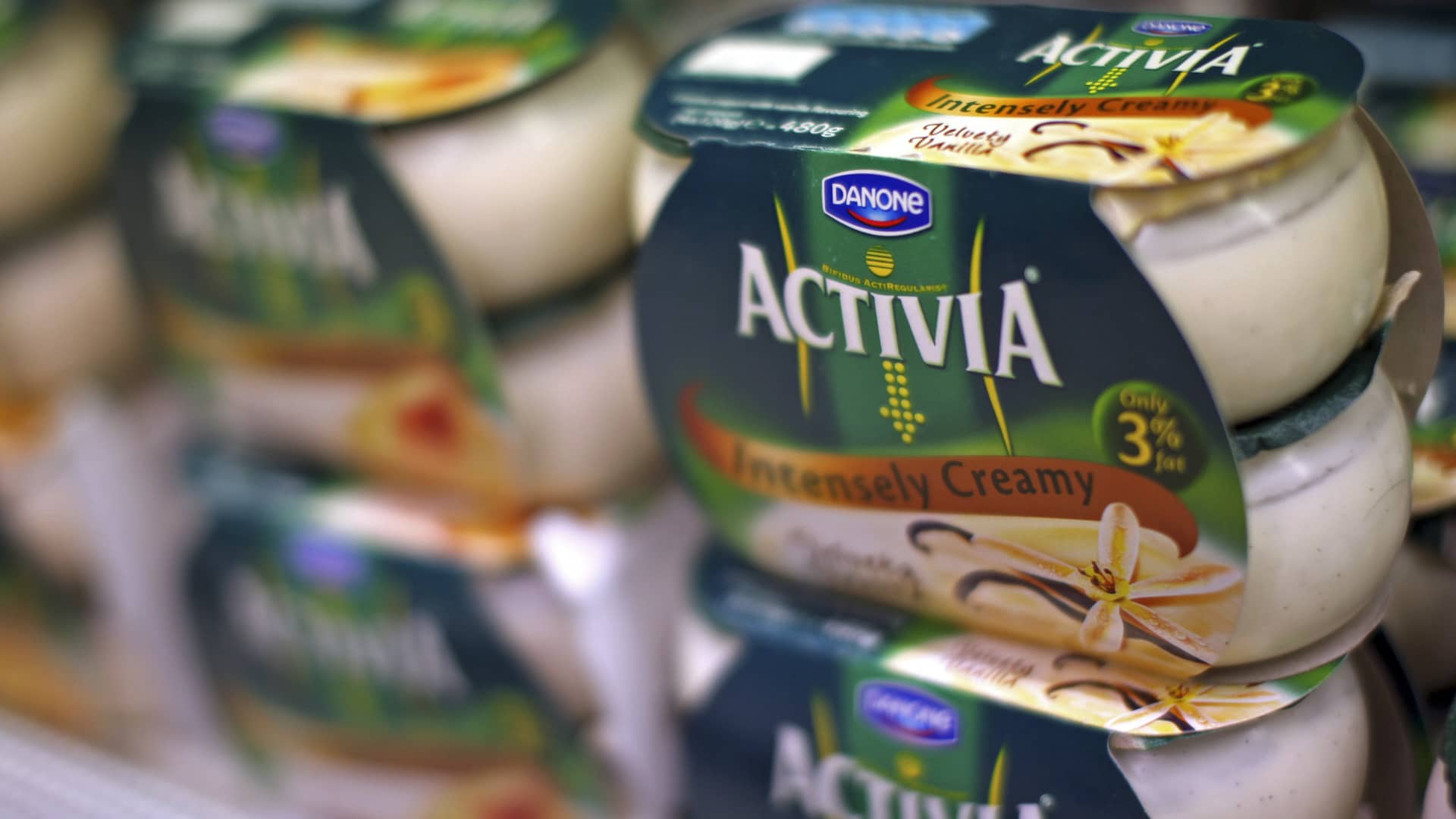The CEO of French consumer goods giant Danone downplayed the threat of obesity drugs on its food business, arguing that consumers were likely to turn to healthy products as part of their new weight loss regime.
Antoine de Saint-Affrique said that surging demand for drugs like Wegovy and Mounjaro would only increase consumer appetite for more nutritional products.
“We see ourselves as extremely complementary to GLP-1s,” de Saint-Affrique told CNBC’s Charlotte Reed Wednesday.
GLP-1s, or glucagon-like peptide 1 agonists, are the underlying class of drugs in weight loss injections such as Wegovy and Mounjaro. They work by mimicking appetite regulating hormones in the body and effectively reducing hunger levels.
The rapid rise of such drugs has prompted concern among food makers, who fear falling sales as consumer appetite wanes. The CEO of Wegovy maker Novo Nordisk said in February that he was fielding calls from “scared” food chiefs asking how the new pharmaceutical class might affect their businesses.
However, de Saint-Affrique said that Danone’s products, which include Activia yoghurts and Alpro plant-based milks, would be an important component of consumers’ new diets.
“We provide protein and protein that you cannot find naturally,” he said. “You need to have those proteins and if you are under the regime, you will miss those proteins. We can bring them we contribute to your gut health,” he said.
“We are actually at the heart of what is needed when you’re using something like GLP-1,” de Saint-Affrique added.
Analysts at financial services research firm Kepler Cheuvreux said in a research note last month that concerns over the impact of GLP-1s on the consumer goods market may be overblown, particularly in the nutritional foods space.
“GLP-1 users may consume fewer calories, but we do not see a material impact on overall food demand, while we see opportunities for food makers of protein products and diet supplements,” Jon Cox, head of European consumer equities, wrote in an emailed note.
“While consumers may shun bad-for-you ultraprocessed foods (UPFs), we believe European companies generally have healthier portfolios compared to some rivals,” he added.
Kepler Cheuvreux named Danone and Swiss food maker Nestle as possible beneficiaries in the new consumer goods landscape. Jefferies last month also named Danone as a buy amid a wider downturn in the food sector as consumers cut back spending in the face of high inflation.
